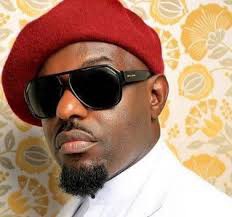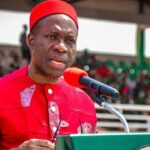In a startling revelation, Nollywood actor Jim Iyke recently recounted an alarming incident where he chased a gay movie producer with a machete, expressing his strong disapproval of LGBTQ+ themes in the entertainment industry.
Iyke’s words, “I can’t roll with the gay guys, I’m sorry. I can’t wear skirt for nobody,” have ignited a broader conversation about the infiltration of LGBTQ+ messages in various facets of society, including fashion, music, movies, and education. His dramatic experience serves as a focal point for discussions around the clash between traditional African values and contemporary influences.
The subtle infiltration of gay themes into popular culture has been a growing concern among many Africans. From fashion that embraces gender fluidity to music that celebrates LGBTQ+ relationships, the influence is evident. For instance, mainstream artists are increasingly collaborating with openly gay musicians, pushing boundaries that some believe threaten the fabric of African society. This trend is mirrored in films that explore same-sex relationships, often receiving both acclaim and backlash. Critics argue that these representations undermine traditional family structures and societal norms, while supporters advocate for inclusivity and acceptance.
Fictional experiences abound, illustrating the tension between modernity and tradition. Consider the story of a young man named Chidi, raised in a conservative Nigerian household. Chidi grapples with his identity amidst societal expectations, ultimately facing rejection when he comes out to his family. His struggles reflect the plight of many in Africa who find themselves caught between their true selves and the weight of cultural expectations. The impact is profound, leading to mental health crises for those unable to reconcile these conflicting identities.
African governments have taken notice of the rising visibility of LGBTQ+ themes and have responded with various measures aimed at curbing what they perceive as a threat to cultural integrity. In countries like Nigeria, laws have been enacted to criminalize same-sex relationships, with heavy penalties for those found guilty. These legal frameworks are often justified by appeals to cultural preservation and the need to protect traditional values. Advocacy groups argue that such measures only serve to marginalize LGBTQ+ individuals further and exacerbate social stigma.
In addition to legislative efforts, grassroots movements are emerging across the continent, promoting dialogue and understanding. Activists argue that fostering acceptance is crucial for societal progress. Yet, they face significant challenges, including backlash from conservative groups and the risk of legal repercussions. The tension between these two sides illustrates a broader struggle over the future of African identity in a globalized world.
Jim Iyke’s dramatic encounter with a gay producer underscores the deep-seated fears and resistance that many feel toward the normalization of LGBTQ+ themes in African culture. His experience resonates with those who share similar sentiments, reinforcing a narrative that views these influences as a threat to cultural integrity. As society continues to evolve, the conversation around LGBTQ+ representation will undoubtedly remain contentious.
In conclusion, the dialogue surrounding LGBTQ+ themes in Africa is multifaceted, encompassing a range of perspectives from those who seek to preserve traditional values to those advocating for inclusivity.
As the continent grapples with these issues, the experiences of individuals like Jim Iyke and fictional characters such as Chidi highlight the ongoing struggle for acceptance and understanding in an ever-changing cultural landscape. The path forward will require careful navigation, balancing respect for tradition with the need for progress and human rights.


